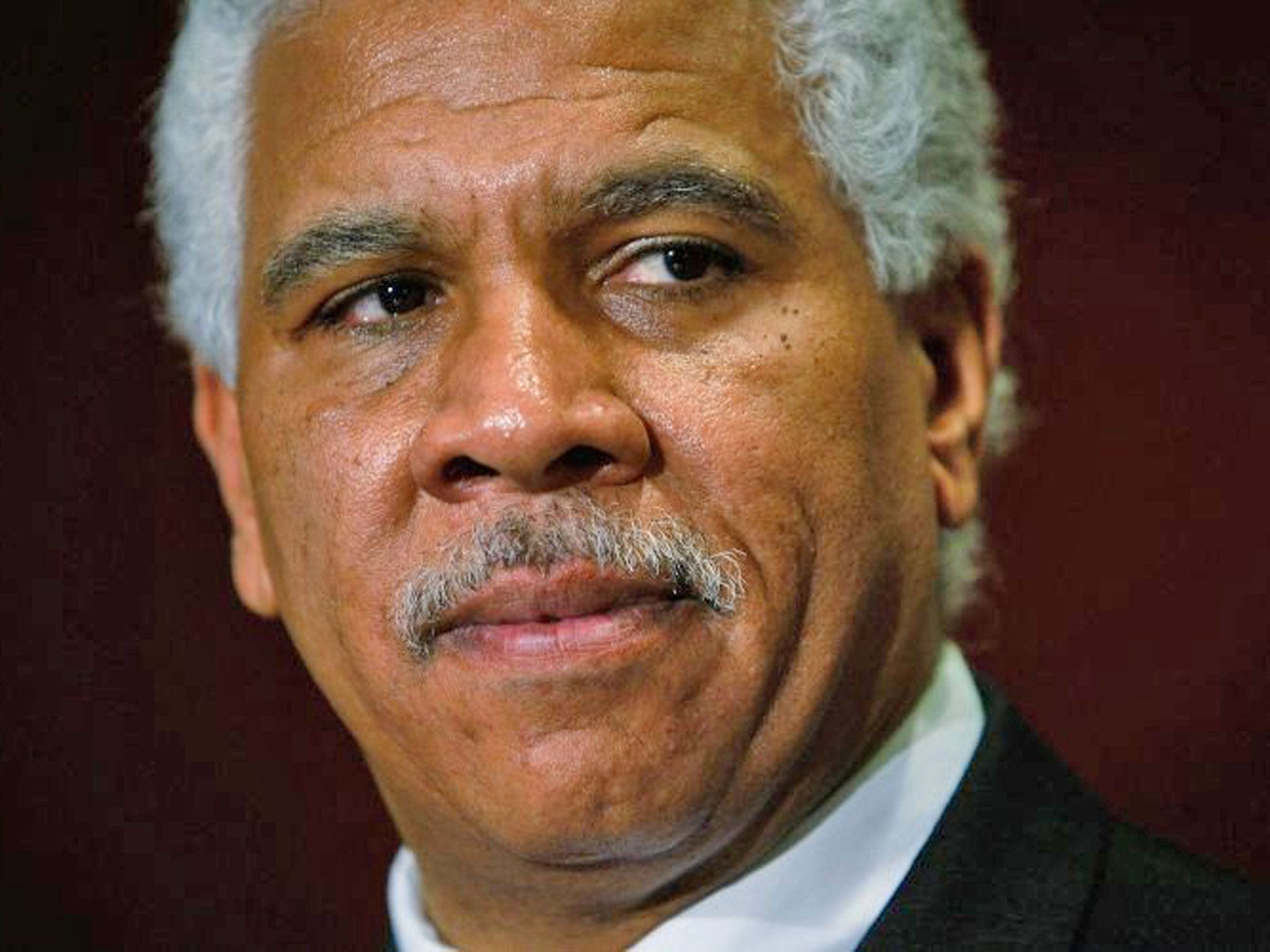Your support helps us to tell the story
From reproductive rights to climate change to Big Tech, The Independent is on the ground when the story is developing. Whether it's investigating the financials of Elon Musk's pro-Trump PAC or producing our latest documentary, 'The A Word', which shines a light on the American women fighting for reproductive rights, we know how important it is to parse out the facts from the messaging.
At such a critical moment in US history, we need reporters on the ground. Your donation allows us to keep sending journalists to speak to both sides of the story.
The Independent is trusted by Americans across the entire political spectrum. And unlike many other quality news outlets, we choose not to lock Americans out of our reporting and analysis with paywalls. We believe quality journalism should be available to everyone, paid for by those who can afford it.
Your support makes all the difference.For Hilary Shelton, President of the Washington bureau of the NAACP, it was the speech that Martin Luther King didn’t give that gets to the heart of the fight for equal rights in America.
“When Dr Martin Luther King was assassinated, he was preparing to deliver a major speech on poverty,” he says. “Robert Kennedy, [who was assassinated just weeks after Dr King] when he was running for President, also recognised that poverty prevents people being equal. And it is still one of the major barriers to equal rights today.
"We have to accept that the parents that have the most resources are not African-American. Sixty per cent of African-American children live in families whose income levels fall below what is recognised as the poverty line. Professional parents produce professional children, and the cycle of poverty is a major concern.”
There are other issues – education, and the rate at which black students in particular drop out of school; unemployment, which is statistically much higher among African-Americans; the so-called ‘soft bigotry’ of low expectations among the wider population.
But it is poverty to which he returns, and which he ascribes as one of the key reasons why the Deep South is still the heartland of American bigotry. Mississippi and its southern neighbours are perpetually involved in a tragic game of leapfrog at the bottom of the income table among US states – in the latest census the last slots for per-capita income were occupied by Kentucky, Arkansas, West Virginia and Mississippi, in that order.
Economic equality is one of the founding principles of the National Association for the Advancement of Coloured People, which, with a history that goes back over a century and more than 500,000 members, is America’s oldest and largest civil rights group.
Its past is intertwined with that of Dr King, and with the movement that still fights for his ideals. Dr King was on the NAACP’s executive committee in Montgomery, Alabama in the 1950s, and the secretary of that same chapter was Rosa Parks, whose refusal to move for a white passenger on the bus did as much as anything to launch the civil rights movement into the national consciousness.
Today, 45 years on from Dr King’s assassination, Mr Shelton believes ‘so much progress’ has been made towards the NAACP’s goals, from cornerstone pieces of legislation like the Civil Rights Act and the Voting Rights Act of the 1960s, to a current-day initiative to improve the recording of hate crimes.
“In most murders, the victim will know who killed them,” he says. “But hate crimes are so much more difficult to solve because they do not have standard motives - the perpetrator does not know the victim, they have just singled them out because of the colour of their skin, because they believe they are gay, because they have seen them coming out of the synagogue. We have worked to persuade the police to improve the way these crimes are recorded and to use technology to help them, but we still have more to do.“
He praises the work of Lyndon Johnson, Jimmy Carter and Bill Clinton in improving the lives of black Americans. Having Barack Obama in the White House has also helped, but not for the reasons one might think.
“It is less his race than his agenda,” he says. “He recognises that we don’t all start at the same point, and that the solutions to the problem have to be crafted in a way that recognises this. You cannot expect those whose legs have been shackled to walk alongside those who have not.”

Join our commenting forum
Join thought-provoking conversations, follow other Independent readers and see their replies
Comments